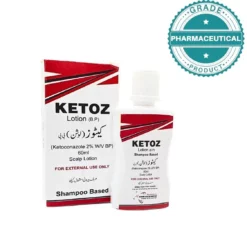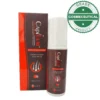Acne and blemishes are a common concern for many women, often impacting self-esteem and confidence. However, effective management and prevention strategies exist to help maintain clear and healthy skin.
Understanding Acne: #
Acne develops when hair follicles become clogged with oil and dead skin cells. This can lead to various types of blemishes, including:
- Whiteheads: Closed comedones (clogged pores) appearing as small, white bumps.
- Blackheads: Open comedones (clogged pores) appearing as small, dark bumps.
- Papules: Small, red, tender bumps.
- Pustules: Pus-filled bumps.
- Nodules: Large, painful, solid bumps beneath the skin’s surface.
- Cysts: Deep, pus-filled bumps.
Factors Contributing to Acne in Women: #
- Hormonal Fluctuations: Hormonal changes during menstruation, pregnancy, and menopause can trigger acne breakouts.
- Genetics: A family history of acne can increase susceptibility.
- Stress: High stress levels can exacerbate acne.
- Certain Medications: Some medications can contribute to acne development.
- Cosmetics and Skincare Products: Comedogenic (pore-clogging) products can worsen acne.
Prevention and Management Strategies: #
- Gentle Cleansing: Wash your face twice daily with a mild cleanser and lukewarm water.
- Non-Comedogenic Products: Choose oil-free and non-comedogenic cosmetics and skincare products.
- Regular Exfoliation: Exfoliate once or twice a week to remove dead skin cells.
- Healthy Lifestyle: Maintain a balanced diet, manage stress, and get enough sleep.
- Avoid Touching Your Face: Touching your face can transfer bacteria and worsen acne.
- Consult a Dermatologist: If over-the-counter treatments are ineffective, seek professional advice from a dermatologist.
Remember: Consistency is key when it comes to acne and blemish control. It may take time to see significant improvement, but with the right strategies and patience, clear and healthy skin can be achieved.
 KETOZ SCALP LOTION 60ml
₨ 389
KETOZ SCALP LOTION 60ml
₨ 389 ANAPRO ANTI DHT HAIR SERUM SPRAY RE-GROWS HAIR, REDUCES HAIR LOSS 50ml
Rated 4.53 out of 5(19) ₨ 1,944
ANAPRO ANTI DHT HAIR SERUM SPRAY RE-GROWS HAIR, REDUCES HAIR LOSS 50ml
Rated 4.53 out of 5(19) ₨ 1,944 CAPILUM HAIR GROWTH STIMULATING CONDITIONER 100ml
Rated 4.47 out of 5(17) ₨ 1,250
CAPILUM HAIR GROWTH STIMULATING CONDITIONER 100ml
Rated 4.47 out of 5(17) ₨ 1,250






